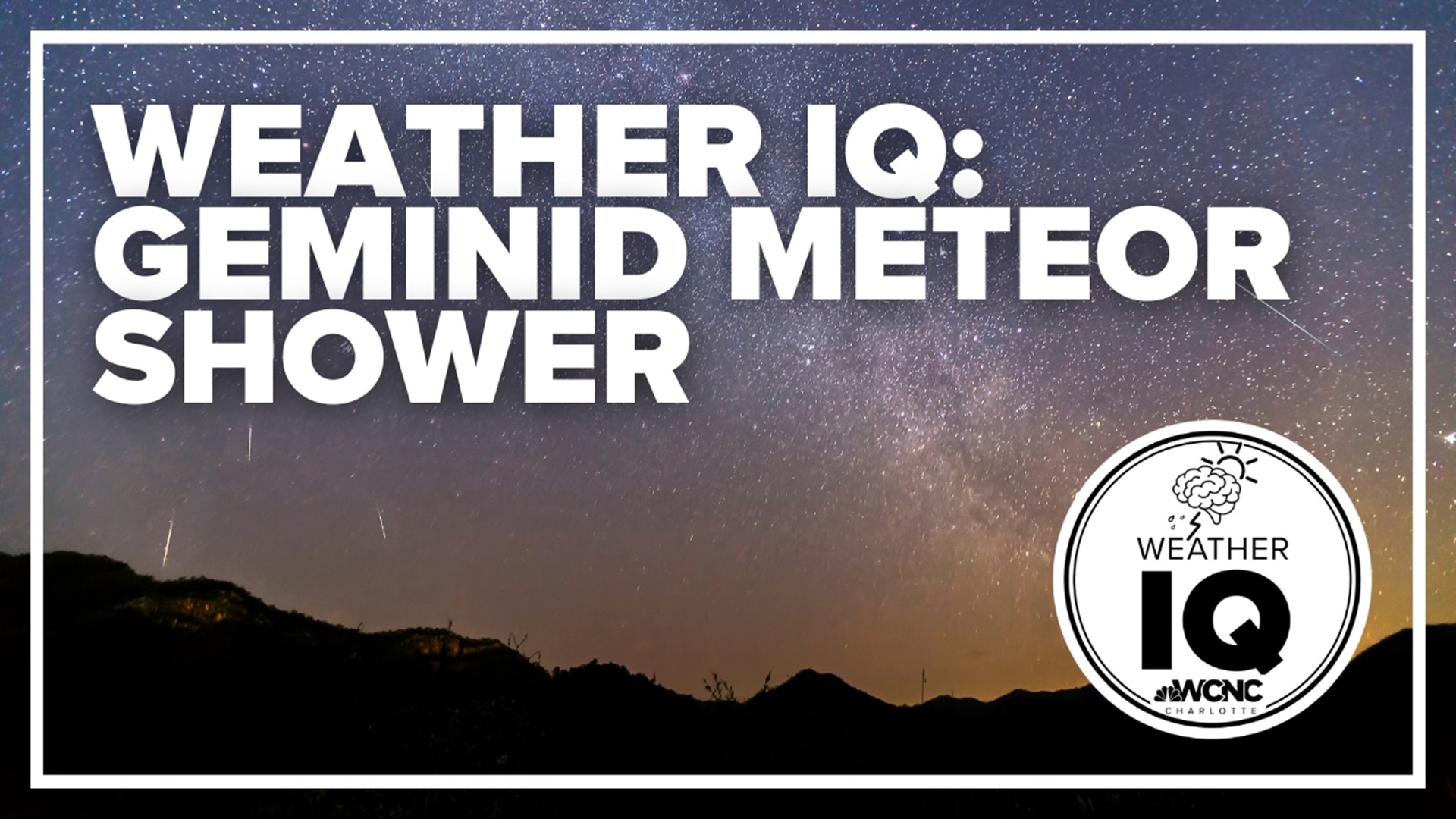CHARLOTTE, N.C. — One of the best meteor showers is currently active with the peak expected in mid-December.
The Geminid meteor shower is active from Dec. 4 to Dec. 17, with a peak during the early morning hours of Wednesday, Dec. 14. NASA says the Geminid meteor shower is one of the "best and most reliable" meteor showers of the year, known bright, fast shooting stars that leave long trails glowing in their wake.
Meteor showers get their names from the constellation from which they radiate. The Geminid meteor shower has a radiant from the Gemini constellation, hence the name.
The reason why we see this meteor shower is because as Earth revolves around the sun, it passes through leftover dust and debris from the 3200 Phaethon asteroid, which is three miles wide. As those chunks of debris enter Earth's atmosphere, they vaporize, creating dazzling shows of streaking light.
And while we're on the topic of meteors, let's clear up some confusion about three similar terms that are often mistakenly interchanged.
A meteor is what's seen burning up in the atmosphere. Before it enters the atmosphere, it's called a meteoroid. And if it reaches the ground, it's called a meteorite.
Back to the Geminid meteor shower. The Geminid typically happens from Dec. 4 to Dec. 17. The peak comes during the early morning on Dec. 14. The most active time should be around 2 a.m. but the radiant will rise up through the evening and set in the morning.
To view this meteor shower, the first thing you should do is find the Gemini constellation. It's located right above Orion. So once you find Orion's belt, you're on the right track. There are numerous apps you can download to easily identify constellations if you're new to stargazing.
If you can't find Orion, don't worry, meteors will be seen all across the night sky. But there is a downside.
This year's meteor shower will be limited by the moon being 70% illuminated. On the bright side, the Geminids are still very bright, so you can still see them! At the peak hour, you can expect to see up 75 meteors per hour.
Contact Chris Mulcahy at cmulcahy@wcnc.com and follow him on Facebook, Twitter, Instagram, and TikTok.
Wake Up Charlotte To Go is a daily news and weather podcast you can listen to so you can start your day with the team at Wake Up Charlotte.
SUBSCRIBE: Apple Podcasts || Spotify || Stitcher || TuneIn || Google Podcasts
All of WCNC Charlotte's podcasts are free and available for both streaming and download. You can listen now on Android, iPhone, Amazon, and other internet-connected devices. Join us from North Carolina, South Carolina, or on the go anywhere.

